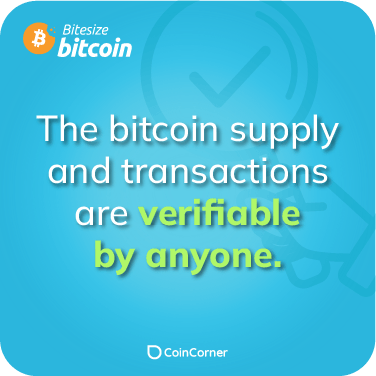Who can verify bitcoin transations?

The transparency and openness of the Bitcoin network are core features that distinguish it from traditional financial systems. Both the Bitcoin supply and transactions are verifiable by anyone, which contributes to the security, trust, and integrity of the network. Here's how this verifiability works:
1. Verifiable Supply:
Bitcoin's Supply is Predetermined: The Bitcoin supply is designed to be predictable and capped. There will only ever be 21 million Bitcoins in existence. This limited supply mirrors the scarcity of precious resources like gold.2. Block Rewards and Halving:
New Bitcoin Issuance: Bitcoins are created as block rewards for miners who validate and secure transactions on the network. These block rewards are programmed to reduce over time through a process known as halving. Approximately every four years, the number of new Bitcoins issued in each block is cut in half.3. Transparent Supply Information:
The Bitcoin Blockchain: The entire history of Bitcoin transactions is recorded in a public ledger known as the blockchain. This ledger is open and accessible to anyone with an internet connection.4. Verifying the Supply:
Bitcoin clients and Explorers: Anyone can verify the current Bitcoin supply by examining the blockchain using Bitcoin clients or blockchain explorers. These tools provide real-time information about the total number of Bitcoins in circulation.5. Verifiable Transactions:
Transparent and Open: Bitcoin transactions are conducted openly and recorded on the blockchain. These transactions include the sender's address, recipient's address, the amount transferred, and a timestamp.6. Traceability and Verifiability:
Blockchain Explorers: To verify a specific Bitcoin transaction, anyone can enter the transaction's unique identifier (its hash) into a blockchain explorer. The explorer will provide comprehensive details about the transaction, including its confirmation status and the associated addresses.7. Decentralized Verification:
Network Nodes: Bitcoin's decentralized network of nodes independently verifies the validity of transactions. This process includes confirming that the sender has the funds they are trying to spend and ensuring that transactions adhere to the network's rules.8. Transparency and Trust:
Security and Confidence: The transparency of Bitcoin transactions contributes to trust in the network. Users can independently verify the authenticity of their own transactions and rely on the blockchain to maintain the network's integrity.9. Privacy Considerations:
While transactions are transparent, Bitcoin addresses do not directly reveal the identities of users. They are pseudonymous rather than anonymous. However, sophisticated analysis can sometimes reveal connections between addresses and identities.Share this fact:





